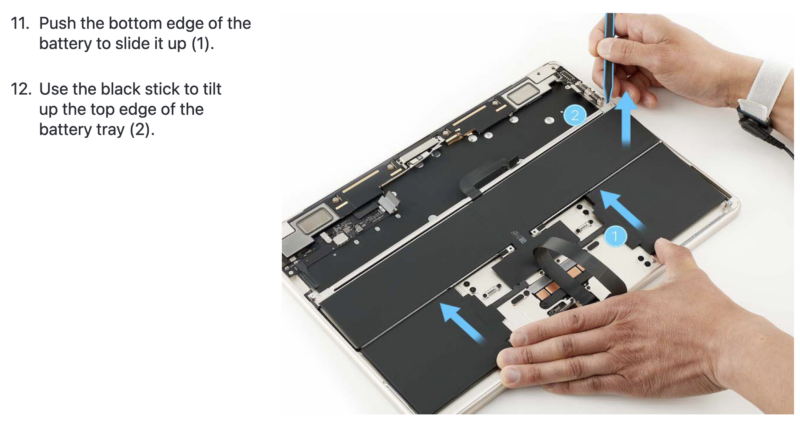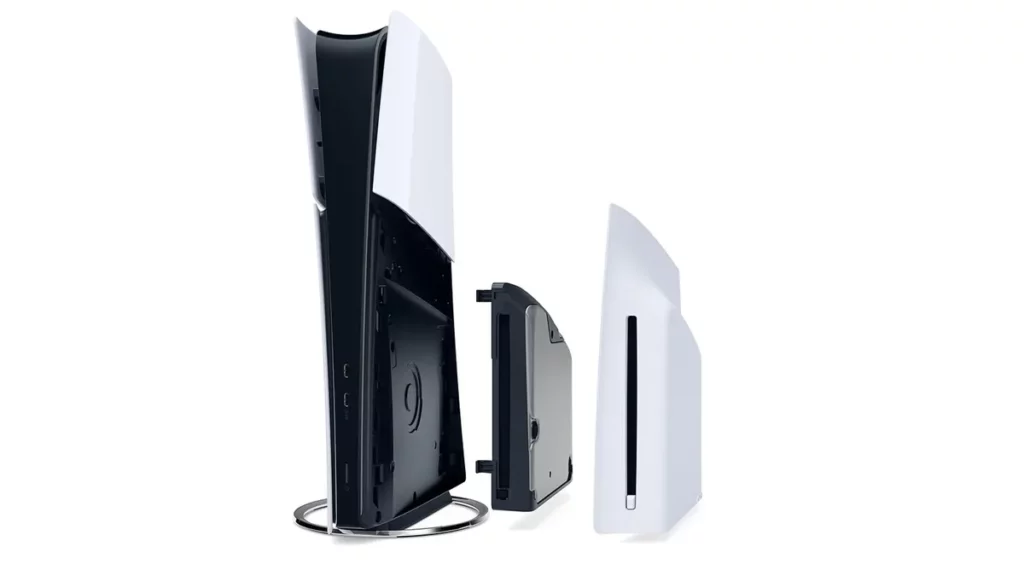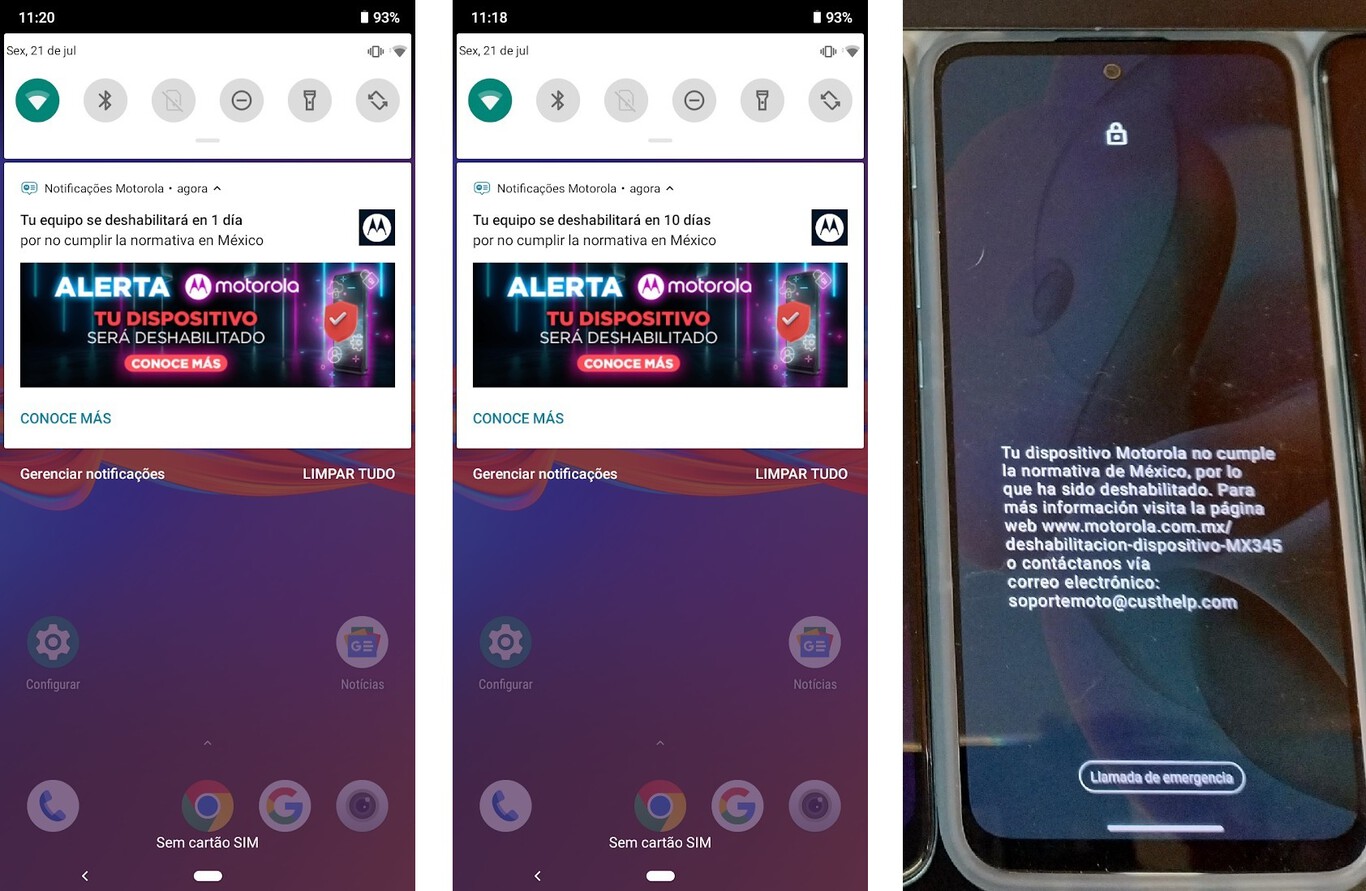All of my opinions are italicized and sources are in blue.
In recent months, an unusually high number of mobile manufacturers have proposed to combat the gray market for mobile equipment in Mexico, through the blocking of cell phones not approved by the regulator of that country, and that were acquired from unofficial suppliers and importers.
Among the companies that joined this initiative are ZTE , Motorola , OPPO , Samsung and—more recently— Xiaomi . Either through notifications to affected users, or by taking more drastic measures.
In case you didn’t know, a gray market is where legal transactions take place in unofficial distribution channels, while a black market is the trade of illegal goods. This form of alternative market became popular in Mexico for many purchases related to mobile devices and gadgets from other countries.
At the end of October 2022 , the Chinese company ZTE started this by sending notifications to users of devices purchased on the gray market, with the purpose of informing them that their mobile devices would not work correctly in Mexico, because they were not approved for the networks. of that country.
Subsequently, Motorola announced that all mobile phones imported and activated in Mexico after July 27, 2023, will be subject to total blocking.
To do this, they will receive two notifications, where one of them will arrive on the same day of activation, and the second, 10 days later. After that time, the device will be completely disabled, without the possibility of accessing the applications, functions or files on it, only available for emergency calls. Turning them into a paperweight.
Samsung decided to get on the cell phone blocking train, announcing measures similar—and even more aggressive—than those of previous manufacturers. Specifically, they began sending retroactive notifications to all imported devices activated from September 21, 2023, starting with the blocks from October 11, 2023.
Dozens of US states, including California and New York, are suing Meta Platforms Inc. for harming young people and contributing to the youth mental health crisis by knowingly and deliberately designing features on Instagram and Facebook that addict children to its platforms.
A lawsuit filed by 33 states in federal court in California, claims that Meta routinely collects data on children under 13 without their parents’ consent, in violation of federal law. In addition, nine attorneys general are filing lawsuits in their respective states, bringing the total number of states taking action to 41 and Washington, D.C.
“Meta has harnessed powerful and unprecedented technologies to entice, engage, and ultimately ensnare youth and teens. Its motive is profit, and in seeking to maximize its financial gains, Meta has repeatedly misled the public about the substantial dangers of its social media platforms,” the complaint says. “It has concealed the ways in which these platforms exploit and manipulate its most vulnerable consumers: teenagers and children.”
The suits seek financial damages and restitution and an end to Meta’s practices that are in violation of the law.
“Kids and teenagers are suffering from record levels of poor mental health and social media companies like Meta are to blame,” said New York Attorney General Letitia James in a statement. “Meta has profited from children’s pain by intentionally designing its platforms with manipulative features that make children addicted to their platforms while lowering their self-esteem.”
In a statement, Meta said it shares “the attorneys general’s commitment to providing teens with safe, positive experiences online, and have already introduced over 30 tools to support teens and their families.”
“We’re disappointed that instead of working productively with companies across the industry to create clear, age-appropriate standards for the many apps teens use, the attorneys general have chosen this path,” the company added.
As reported by ArsTechnica,
Right-to-repair advocates have long stated that passing repair laws in individual states was worth the uphill battle. Once enough states demanded that manufacturers make parts, repair guides, and diagnostic tools available, few companies would want to differentiate their offerings and policies and would instead pivot to national availability.
On Tuesday, Apple did exactly that. Following the passage of California’s repair bill that Apple supported, requiring seven years of parts, specialty tools, and repair manual availability, Apple announced Tuesday that it would back a similar bill on a federal level. It would also make its parts, tools, and repair documentation available to both non-affiliated repair shops and individual customers, “at fair and reasonable prices.”
“We intend to honor California’s new repair provisions across the United States,” said Brian Naumann, Apple’s vice president for service and operation management, at a White House event Tuesday.
Apple, which had for years opposed right-to-repair laws under the auspices of security and physical safety concerns, has recently offered both an independent repair program for unaffiliated shops and a self-service repair program for individuals.
Apple’s pledge was part of a White House push on right-to-repair issues. The Biden administration has pushed right-to-repair needs as a consumer issue, focusing on raised costs and stifling small businesses. Nationwide repair bills have been introduced before but have yet to gain much momentum. Apple’s support for such a bill could have an impact, especially if other manufacturers follow suit in matching their national policy to California’s law.
Elizabeth Chamberlain, director of sustainability for iFixit, a parts vendor and repair advocate, suggested that Apple’s pledge to extend California’s law on a national level is “a strategic move.” “Apple likely hopes that they will be able to negotiate out the parts of the Minnesota bill they don’t like,” Chamberlain wrote in an email, pointing specifically to the “fair and reasonable” parts provisioning measure that could preclude Apple’s tendency toward pairing parts to individual devices.


The new PS5 model was announced on October 10, and, while it did have some benefits, it was not a significant change. This new model is slightly slimmer and shorter than the existing one but will crucially replace both the PS5 and PS5 Digital Edition. In the US, the new model will cost $499.99 with the drive included, while the PS5 Digital Edition is $449.99 (which is $50 more then the previous PS5 Digital).
In terms of hardware changes, there are now two slits on each side and dual USB-C ports at the front instead of the single USB-C and USB-A ports that are available on the current PS5. A horizontal stand will be included with this new PS5 model, and a new vertical one that works on all PS5 models will be sold separately for $29.99. Both new PS5 models also include 1TB of storage now, instead of the 825GB found on the existing PS5.
Depending on your views on removing the PS5 stand from the box, the new model is better than the previous, with one exception. The disc drive is removable and can be added to Digital models for an additional $70. That by itself is a good thing, but, As noted by Video Games Chronicle, this is according to images of the box for an upcoming Call of Duty: Modern Warfare III PS5 bundle that will ship next month. At the bottom of the back, there’s a line that says “internet connection required to pair Disc Drive and PS5 console upon setup.” The going theory, based on how Sony has previously linked its optical drives and motherboards, is that there’s a required handshake between the two hardware components that validates authenticity and creates a unique pairing between them.
Once you’ve done that, there won’t be any need for an internet connection again. But the fact that one exists to begin with has already alarmed some people who are envisioning a time long in the future when Sony inevitably shuts down whatever server was responsible for this disc drive verification. What happens then? Considering that physical media is on such a decline, maybe there are bigger worries to deal with first.
The redesigned PS5 console will be available in November; Sony hasn’t yet confirmed an exact release date.
As reported by Tom’s Hardware
There are few things more frustrating than paying for high-speed PC components and then leaving performance on the table because software slows your system down. Unfortunately, a default setting in Windows 11 Pro, having its software BitLocker encryption enabled, could rob as much as 45 percent of the speed from your SSD as it forces your processor to encrypt and decrypt everything. According to our tests, random writes and reads — which affect the overall performance of your PC — get hurt the most, but even large sequential transfers are affected.
While many SSDs come with hardware-based encryption, which does all the processing directly on the drive, Windows 11 Pro force-enables the software version of BitLocker during installation, without providing a clear way to opt out. (You can circumvent this with tools like Rufus, if you want, though that’s obviously not an official solution as it allows users to bypass Microsoft’s intent.) If you bought a prebuilt PC with Windows 11 Pro, there’s a good chance software BitLocker is enabled on it right now. Windows 11 Home doesn’t support BitLocker so you won’t have encryption enabled there.

